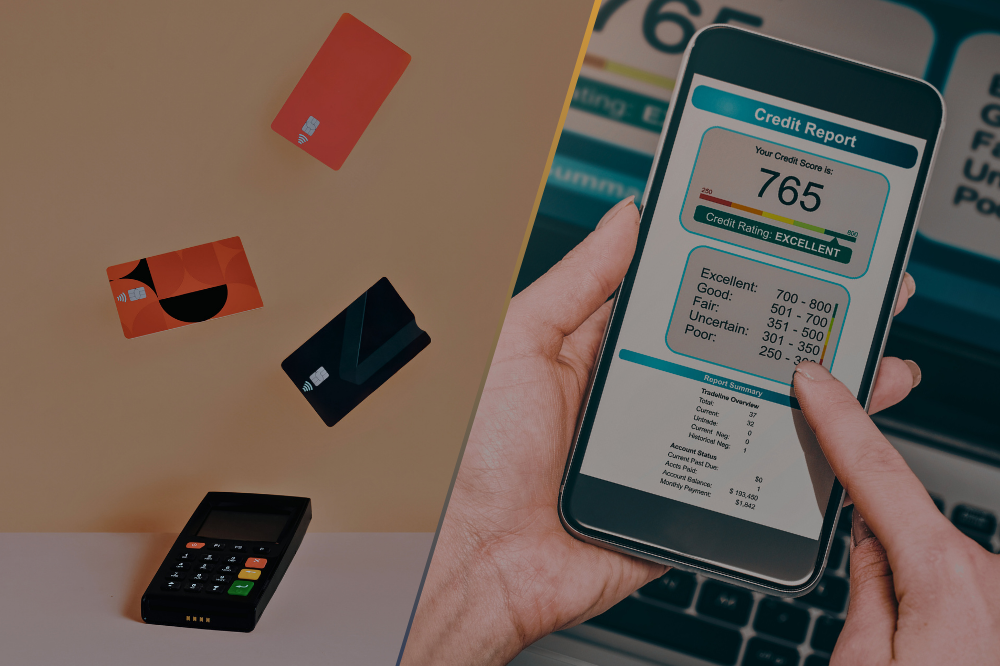Are you trying to build a good credit score? Find out if having more credit cards can help your score?
A good credit score is a crucial asset for you financial life. Acting as a report card, your score shows lenders your trustworthiness when it comes to borrowing money. The higher your score is, the better are the interest rates, the higher are your chances of loan approvals, and even lower insurance premiums. Keeping that in mind, you’ve probably asked yourself if having more credit cards can help your score.
Find out whether it does or not and how many cards should you have, so you can boost your score! Also, if you want to check out more financial tips on our website, you can click on this link!
What Is A Credit Score?
It is a three-digit number calculated by credit bureaus based on your credit history. This history includes factors like your payment history, credit utilization ratio (the amount of credit you’re using compared to your total limit), credit mix (the types of credit you have, such as credit cards, loans, etc.), length of credit history, and new credit inquiries.
Does Having More Credit Cards Help Your Credit Score?
Yes! Having more credit cards can potentially boost it in a few ways, such as:
- Improved Credit Utilization Ratio: this is a major factor influencing your credit score. Ideally, you want to keep your credit utilization rate below 30%. With multiple cards, your total credit limit increases, making it easier to maintain a good utilization ratio even with regular spending. Imagine having a single card with a $1,000 limit and you spend $800 a month. Your utilization is a concerning 80%. But, with two cards, each with a $1,000 limit, and the same $800 spending spread across them, your utilization drops to a healthier 40%;
- Credit Mix: credit bureaus like to see a responsible use of various credit types. Having a mix of credit cards, loans, and even a mortgage (if you own a home) demonstrates your ability to handle different financial obligations;
- Length of Credit History: the longer your credit history, the better. Each credit card you hold adds to your overall credit age, which can positively impact your score.
How Multiple Credit Cards Can Hurt Your Credit Score
Despite helping improve your score, this strategy can also harm it if you aren’t too careful of how you use the cards. The negative impacts include:
- Hard Inquiries: every time you apply for a new credit card, a hard inquiry is placed on your credit report. These inquiries can slightly lower your score in the short term, although the impact diminishes over time;
- Increased Debt Potential: more credit cards translate to more spending opportunities. If you’re not careful and fall into debt it will drag your score down.
How Many Credit Cards Is Too Many?
There’s not a specific number. Experts generally recommend having 2-3 credit cards to establish a good credit mix and benefit from a higher total credit limit. However, it comes down to your financial discipline. If you struggle with managing multiple cards, it’s best to stick to fewer.
Making Use of Multiple Credit Cards
If you choose to go the multiple credit card route, here are some tips to make the most of it:
- Responsible Spending: only spend what you can afford to pay in full each month;
- Strategic Utilization: don’t max out your cards. Aim to keep your overall credit utilization ratio below 30% for optimal score improvement;
- Timely Payments: late payments are a major red flag for credit bureaus and can significantly damage your score. Set up autopay or reminders to ensure on-time payments;
- Rewards and Benefits: many cards offer rewards programs for cashback, travel points, or other perks. Utilize these benefits to your advantage, but prioritize responsible spending over maximizing rewards;
- Avoid Account Closures: closing old, inactive accounts can shorten your average credit age and potentially harm your score. If you have an old card you don’t use, consider keeping it open but avoid using it.

